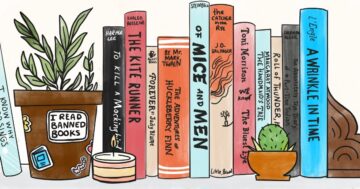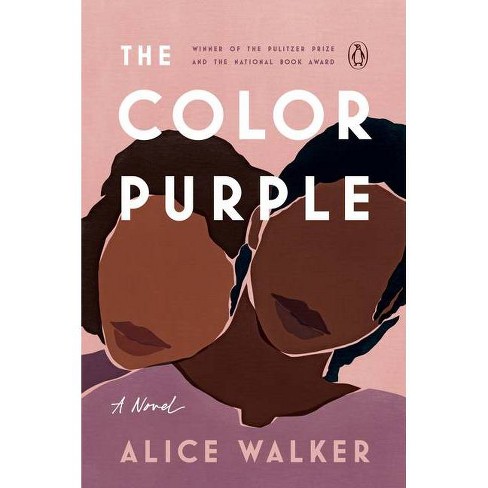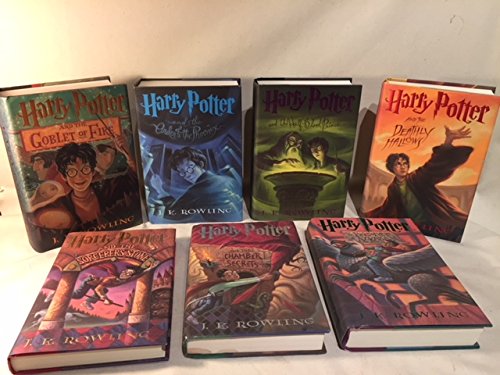
Warning: This article may contain spoilers.
Sine 1982, over 11, 300 books have been challenged and banned in the United States alone. From the years 2018 to 2020, over 1,133 books were banned in school libraries, classrooms, and public libraries. For centuries, government officials, organizations, and parents have sought to control what their children read by banning certain pieces of literature. Most books are challenged or banned because of the content presented in the books. The content being banned or challenged can include sexual references, violence, profanity, and unsuited for certain age groups. Even prior to the year 1982, banned books and censorship has been an issue for schools all across the United States for these various reasons. Many of the books banned today are books that many of us grew up reading in primary school, as well as our parents. It might be shocking to some to find out that the novels The Color Purple by Allice Walker and Harry Potter and the Sorcerer’s Stone by J.K. Rowling are just some of the popular household names on the banned list.
The Color Purple
The Color Purple by Allice Walker has been banned in schools across the United States sine 1984, just two years after the book was published. The book was banned for its sexual content and situations of abuse and domestic violence.
This book is a historical fiction about a 14-year-old African American girl named Celie, who writes letters to God because her father abuses her. Celie’s father forces her to marry a man who she does not know. Celie refers to this man as ‘’Mister,’’ who also doesn’t treat her well. Throughout the story, Celie writes letters to God about how she deals with being a wife while also discovering more about who she is along the way.
When it was first released, it assigned as a required reading for many high school English classes. Parents were not happy, saying it was inappropriate for their age group. Parents also said it was too violent and had too much sexual content for the age group. The book was originally banned because ”it went against God and their beliefs.” In the book, Celie develops a same-sex relationship with a character named Shug. Parents claimed that their scenes in the book were too graphic and unnecessary.

Harry Potter Series
The famous Harry Potter series by J.K. Rowling was banned on multiple occasions. Harry Potter and the Sorcerer’s Stone was published in 1997. In 2001, the book was banned because of ”satanism and anti-family themes.” In 2002-2004, the book was banned for its focus on wizardry and magic. However, these bans did not stop Rowling from writing the rest of the series.
This book is a children’s fantasy book about a character names Harry Potter, an orphan brought up by his aunt and uncle. Harry is unloved by his aunt and uncle, but on his eleventh birthday everything changes. Harry learns that he is an orphan of two of the most powerful wizards and has magical powers of his own. Harry is summoned to join Hogwarts school of witchcraft and wizardry. There, he meets his closest friends who help him discover the truth about his parents.

Major Motion Pictures
The art of storytelling has always been deemed controversial, which has lead works across various different mediums to be banned. It’s surprising to see how many hit movies are based on books that have been banned at one point. Labeling a book as banned, or scandalous, makes individuals want to read the book or see the film adaptation even more. There are some people who are not big readers, but they are big movie-goers. Turning a banned book into a film allows those who are not interested in reading to form their own opinion on the matter, even if they only saw the film.
Both of these banned books were turned into movies. The Color Purple was released in 1985. Some of the cast members include Oprah Winfrey, Steven Spielberg, Whoopi Goldberg, Danny Glover, and Margaret Avery.
The Harry Potter series was first released in 2001, and the last movie was released in 2011. Even though the series has ended, many people are obsessed with Harry Potter. The franchise has also grown to be very popular among many generations. There are many tourist attractions in relation to the Harry Potter books. There are many Harry Potter themed Airbnb’s. Universal Orlando also has a Harry Potter attraction called The Wizarding World of Harry Potter. Fans can also visit over 25 Harry Potter destinations to tap into their inner wizard.
Why Students Think These Books Are Banned
The Color Purple and the Harry Potter series are books that many are familiar with and grew up reading in school. University students were asked why they think these books were banned. Sophomore Alex Weston states ‘’ I believe that everyone deserves the right and access to literature. I grew up reading the Harry Potter books and have seen all the movies. I understand that people have different religious viewpoints, but that doesn’t mean that every student shouldn’t have access to reading these books. The Harry Potter books are a staple and will continue to be.’’ Junior Kerinna Kanters also expressed her opinions on why she believes these books have been placed on the banned list. ‘’I think people want this or any book banned because it is not the message they want their kids to be exposed to.’’
Censored Reading
Parents, organizations, and government officials challenge or ban books because they don’t agree with the content being presented in the book. Whether it is sexual content, offensive language, not appropriate for the age group, they still believe that it should not be read in the classroom. This discourages children from broadening their horizons when it comes to literature. As Mark Twain once said, ‘’Folks who can and don’t read good books have no advantage over the man who can’t read them.’’
